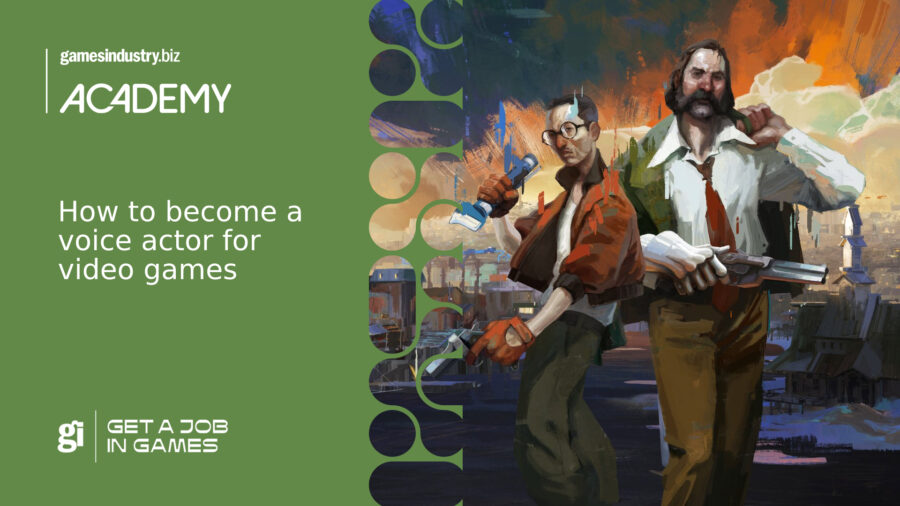It’s Get a Job in Games month on GamesIndustry.biz. Looking for work? Discover hundreds of positions worldwide at jobs.gamesindustry.biz.
Finding a job is no easy task. Our guides can help you to find the right path to the games industry job of your dreams. You can read our other in-depth guides on how to get a job in the games industry on this page, covering various areas of expertise.
Voice acting has become an increasingly important part of game development, elevating many games into truly memorable experiences. It can seem like a dream job from the outside, letting you be your own boss, working on a variety of exciting projects. But while many voice actors love their work, the day-to-day reality is a bit less glamorous.
“I feel like my job is 20% performance,” laughs Aimee Smith, a voice actor based in Australia. Smith, a former primary school teacher, started voice acting in 2011 as a hobby and has been working as a professional voice-over artist since 2019, with credits in games like Cloudpunk, Smite, Freedom Planet and Mobile Legends.
“The job of a voice actor is looking for work: actually doing the work is just gravy”
Ashe Thurman
“Ultimately, this is still a business. You are spending so much time emailing back and forth with clients, updating profiles on different websites, updating your website, invoicing, marketing — there’s so many elements to this job. I spend a lot of time at my desk, actually.”
Actors for video games work with voice directors and game developers to bring interactive narratives to life, working out of their homes or in recording studios. You’ll need to find work through auditions and outreach, before delivering high-quality performances during long recording sessions. Voice acting is a highly collaborative process which can require a basic knowledge of sound editing and sound engineering for those working out of home studios.
Smith primarily focuses on video games, sessions for which run for roughly two hours. Doing one such session every few days will pay for the rest of her week, which is spent marketing for other leads and sending approximately ten auditions out every day.
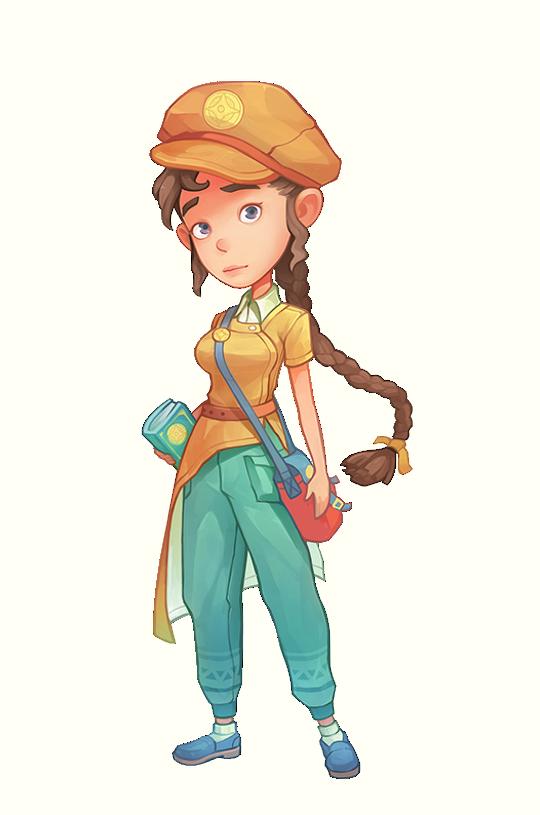
Ashe Thurman portrayed Nora in My Time at Portia
“You’re constantly having to chase down: what’s my next lead? What’s my next job interview? What’s my next audition?” says Ashe Thurman, a US-based voice actor and director who develops games under the banner Pixels and Pins Studios.
Thurman, who originally studied computer science and mechanical and electronics drafting at university, has acted in games such as Paladins, My Time at Portia and Paranormal Files: The Tall Man. They wryly note that “the job of a voice actor is looking for work: actually doing the work is just gravy.”
However, this day-to-day experience is a bit different for UK-based voice-over artists, who more often book work from their demos rather than auditions, our interviewees say. Additionally, voice actors in the UK may not necessarily operate out of home studios, although home studio usage has increased due to the pandemic.
Voice-over artists can work across a wide variety of mediums, including commercial and corporate work, audiobook narration, e-learning projects and voice acting for animations, anime and video games — it’s rare for actors to exclusively focus on the games industry. Still, if you’d like to bring game characters to life, we’ll dive into the nitty-gritty to find out what it takes.

Kirsty Gillmore was voice director in the dialogue recording team for Larian’s Baldur’s Gate 3
What experience do I need to become a voice actor?
Initially focus on training and gaining experience
“If you want to get into voice-over, wherever you are in the world, start with training. Train to be a voice actor, particularly if you have absolutely no acting background or presenting background.”
That’s advice from Kirsty Gillmore, an experienced voice and casting director, sound designer and voice actor based in London, who has worked on games such as Destruction All Stars and Baldur’s Gate 3. Gillmore advises actors to improve their skills and gain experience before investing in expensive equipment or a home studio.
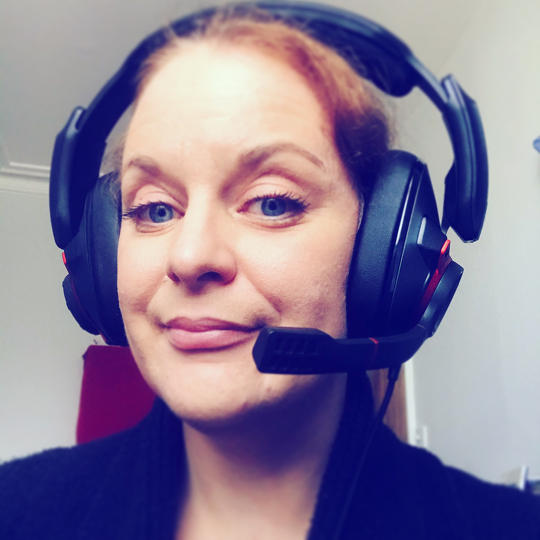
Kirsty Gillmore
Gillmore points to workshops, amateur theatre groups, workout groups where actors practice scripts together, web panels and improv workshops as just some examples of where to get started.
Thurman also emphasises that any acting experience is good experience and cites voice acting boards, social media and forums as good places to get involved with original projects. They also encourage anybody still in school to take advantage of their school’s theatre programs.
“It’s really good to have some kind of [coaching, workshop or one-on-one session], because you don’t want to risk picking up bad habits,” Thurman says. “If you’re only ever practicing yourself, you have no one to give you feedback on whether what you’re doing is effective or not apart from your booking rate. If you’re booking a lot, then OK, maybe you are doing something right. But maybe you could be doing something better.”
Learn how to take direction
Performing with others gives you experience of being directed and receiving feedback, something Gillmore says is crucial for voice directors.
“If I can’t get a performance out of an actor because they don’t know how to apply what I’m asking them to do, they don’t know how to reflect that in their performance, then that’s not very useful to me,” she says. “You don’t make video games in isolation and [for] the vast majority of high quality video games out there, you will need to be directed.”
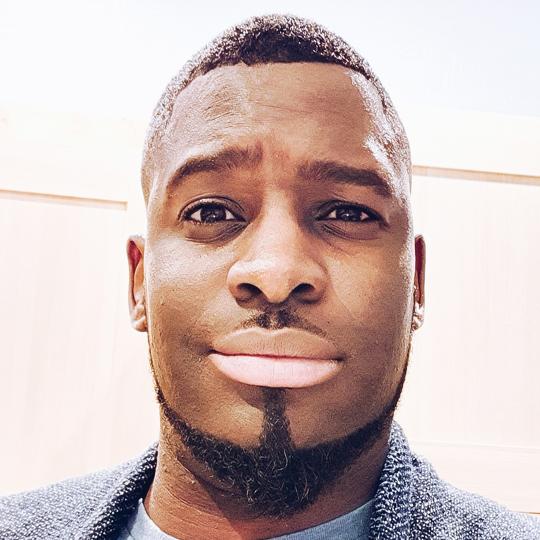
Inel Tomlinson
Actor, comedian and voice-over artist Inel Tomlinson, with credits on games like We Happy Few: Lightbearer, The Solitaire Conspiracy and Fable Fortune, has an extensive background in television, stage and radio. Tomlinson studied Drama and Theatre Studies at Middlesex University, subjects he taught as a former secondary school teacher, and feels that all of this experience has been extremely helpful for him as a voice actor.
“It’s all about being able to take direction, to change things on the fly, being able to work with other people really quickly and [adapting] super fast,” he says.
Mikee Goodman is a musician, voice actor, voice director and owner of voice-over agency Charactoon Studios. Goodman was one of the voice directors on Disco Elysium, which features various musicians among its voice cast, including Tariq Khan and Lenval Brown. Goodman is fully open to non-trained actors as a director but acknowledges that trained actors can bring more security to a project, saying “You’re not always going to get Tariq Khans — it’s very rare actually.”
“If we know that someone is trained, we know that it’s going tobe a shorter session, you usually know what you’re going to get,” he adds.
Don’t focus on your demo reel when starting out

Aimee Smith
Tomlinson, Thurman and Smith all created their own demo reels — short audio clips that showcase an actor’s repertoire — when starting out, but have since all gotten professionally produced demos. However, Smith discourages new voice actors from focusing on their demos at all when starting out, instead encouraging them to learn what vocal types they can do well, what sort of work they can book, and whether or not they even enjoy voice acting.
“[My first demo] was not very good: it would not fly today because I was very, very new,” Smith says. “If you don’t have any experience voicing in video games or you don’t have any coaching or things like that, do not get a demo to start with because you’re going to find, when it comes back to you in two weeks, four weeks, whatever, you should already be better by then… that’s a complete waste of money.”
Gillmore agrees, saying that a professionally recorded demo should showcase the different acting styles you have in your repertoire — games acting is often more dramatic and naturalistic than anime and animation acting, for example — and should have a variety of believable character voices. Additionally, a demo should not have intrusive sound effects or music. However, as a casting and voice director for games, Gillmore mainly books people off their auditions rather than their demos
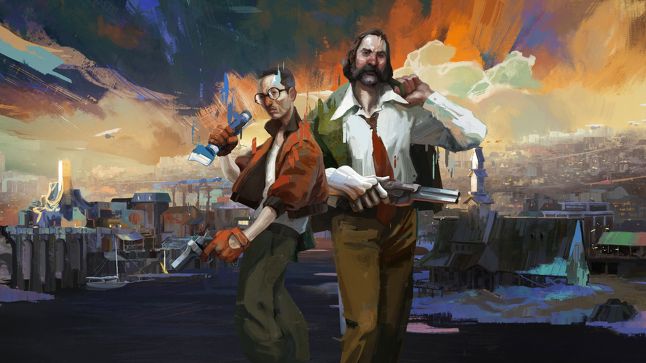
Mikee Goodman was one of the voice directors on Disco Elysium
What equipment do I need to get started?
Treat your surrounding environment first, then upgrade as you go
Thurman used their Twitch streaming equipment when they first started voice acting from home, but it quickly became apparent that this setup wasn’t cutting it. The solution was a closet in their spare bedroom, padded out with blankets to form an improvised recording room. While Thurman has since moved onto a custom-built recording booth and upgraded their equipment multiple times, they encourage beginner voice actors to focus on treating their surrounding environment first.
“You can certainly start off with a USB microphone, pop filter attached, sitting under a blanket”
Aimee Smith
Smith started out by using her computer’s in-built microphone in an untreated space. She upgraded to a USB microphone a few months later and booked paid work such as Freedom Planet, but says: “If I did this today, I’m almost entirely certain I wouldn’t have been cast.” However, when you’re starting from scratch, the solution can be as simple as a duvet.
“You can certainly start off with a USB microphone, pop filter attached, sitting under a blanket and with any recording software, and reinvest your money into equipment as you go further — once you figure out if you even enjoy it, once you’ve had the time to [play] and figure out your bookable vocal types through jobs and classes. It’s a marathon, not a sprint,” Smith says.
Learn basic sound engineering and sound editing
Outside of performing, voice actors working out of a home studio need the software and basic sound engineering and editing skills to polish their recordings. If something goes wrong with an actor’s home setup during a remote recording session and they’re unable to fix it, it could put a studio or director off from hiring them in the future.
“It really makes my heart sink when I hear actors with home studios go: ‘I’m not very tech-y, I don’t know anything about it’, I’m like: why do you have a home studio then?” Gillmore says. “If you really don’t know how to work the equipment then you should just not do it, and just hire a studio when you have jobs that you need a home studio for.”
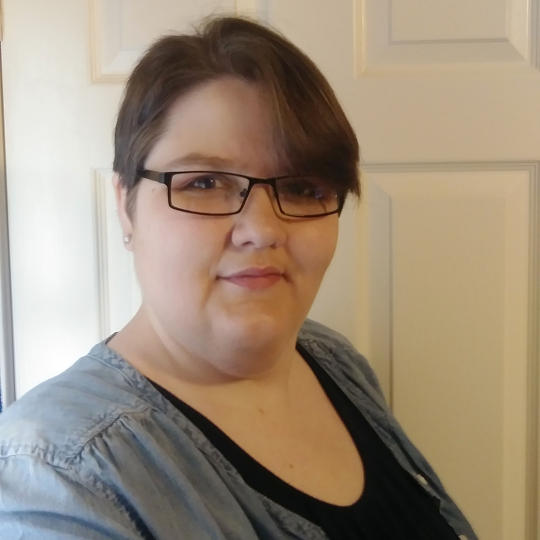
Ashe Thurman
Thurman uses the audio editing software Adobe Audition in their current work but started out using the freely available Audacity, which has more limited functionality.
“You can start with Audacity for free to get the handle on how audio editing and recording works and then you can pick whichever software works best for you,” Thurman advises.
Thurman also has experience with game development, voice direction and voice casting and feels that all of these skill sets cross-pollinate. Making their own games has also been handy for their acting portfolio.
“Making my own games has been the biggest factor in having games to direct. I can just be like: I made it myself, I can do what I want, I’ll cast myself as a part, yay!” Thurman says.
How do I prepare for video game auditions?
Know your ‘toolbox’ inside-out
When auditioning, Smith keeps a checklist in her mind of what qualities a studio is looking for in a character. Additionally, both Smith and Thurman have a ‘toolbox’ of character archetypes they can adapt and modify on short notice.
“Obviously, you still want things to feel as fresh as possible with every audition and we all try really hard to do that. I just don’t think it’s possible and plausible for every audition, so sometimes just having that baseline, knowing that you’ve done a similar character like this in the past, helps,” Smith says.
Say 500 people audition for five parts; well, you’re with the other 495 people who didn’t get the part. You’re in good company”
Ashe Thurman
“I’ve got my angry little 14-year-old boy, I’ve got my nerd girl, I’ve got my kinda-goofy weird scientist character,” Thurman agrees. “I’ve got my characters, I know what I can do, I know what I’ve been booked to do before.”
Voice acting can be an extremely competitive field and it’s important for actors to develop a thick skin when dealing with rejection.
“You can’t take it personally,” Thurman says. “Say 500 people audition for five parts; well, you’re with the other 495 people who didn’t get the part. You’re in good company.”
Although it might be tempting to try and impress casting directors, it’s crucial that actors don’t audition with a vocal type that they cannot sustain for an entire recording session. Additionally, if you’re one of the lucky ones who gets the job, it’s important to be professional and easy to work with — Gillmore describes working with difficult actors as “tiring, time consuming and frustrating.”

Kirsty Gillmore was voice director for Destruction All Stars
Make your tape short and sweet
When it comes to self-taped auditions, it’s important to make your tape clear and concise. Gillmore advises actors to follow instructions clearly, read through lines fluidly one character at a time and don’t do more than two takes unless you really feel like you can offer something particularly special.
“Casting directors are incredibly busy and a lot of the time they might not even listen past ten seconds”
Kirsty Gillmore
“Always bear in mind that casting directors are incredibly busy and a lot of the time they might not even listen past ten seconds. It usually will take five to ten seconds for me to go: ‘Is this person in the right ballpark for what I’m after? Are they interesting enough to make me want to listen more?'” Gillmore says.
For Goodman, it’s important that an audition tape is labelled correctly, showcases the actor’s voice without lots of special effects and demonstrates that an actor is in flow as a character.
“I really like it when someone just records one take and it’s good, because then I know that they’re just in a flow and that they can do it,” Goodman says.
What skills do video game voice actors need?
Be adaptable and versatile
When compared to other narrative mediums, many video games stand out for their non-linear storytelling. As a result, adaptability is an important skill for game actors. Voice recording sessions are often done in isolation, with actors having to imagine the other characters in a scene whilst jumping around different timelines and emotional states on the fly.
Gillmore gives an example: say your character enters a crypt and starts a conversation with your brother in one version of a scene. You might then be directed to do it again but with the knowledge that your brother has betrayed you, or that you’ve just completed a combat encounter and are out of breath. Versatility is also important, allowing actors to potentially be hired more often.
“Being able to do lots of accents and different characters is really helpful in video games and animation”
Mikee Goodman
“Being able to do lots of accents and different characters is really, really helpful in video games and animation,” Goodman says. For example, he finished a recording session early for the upcoming video game Road 96 and was subsequently asked to voice multiple additional characters to fill in the slot.
Physical acting experience can also be helpful, both for motion capture performances and voice-over work in general. For example, Gillmore notes that you can hear when a voice actor is physically smiling.
For Tomlinson, practicing sight reading — being able to perform a previously unknown script on the spot — is “imperative” for all actors. This helps them learn how to flow through different tenses, moods and emotions cohesively whilst improving their ability to “quickly make choices on the fly.”
Tomlinson is a Twitch streamer and often sight-reads aloud when playing story-based games, both to entertain his viewers and to practice.
“[Sight-reading] can be quite difficult, particularly for people that are dyslexic like myself, so I tend to practice as much as I possibly can,” he says.
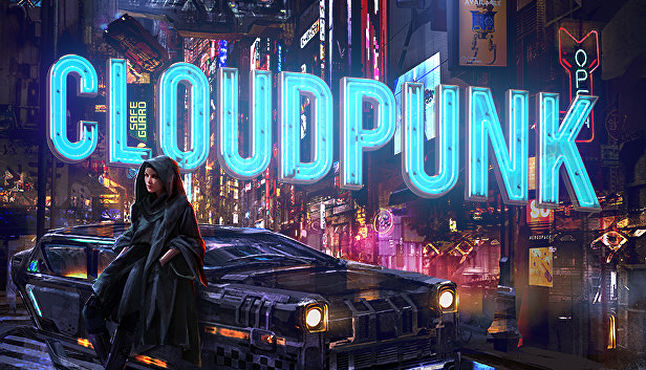
Aimee Smith worked on Ion Lands’ Cloudpunk
Does my location limit my opportunities as a voice actor for games?
It does for certain projects, but not for many others
Some game studios prefer to use commercial recording studios located near their headquarters, particularly for AAA games. Being based outside of hubs, like London in the UK or Los Angeles in the United States, can limit certain opportunities for voice actors.
However, Gillmore says that AAA games are not the be all and end all, noting that “there are plenty of amazing indie games being made out there and indie is a very wide spectrum.”
“There are studios all around the world and there’s plenty of projects that I’ve directed where we’ve done it through home studios,” Gillmore continues, pointing to Destruction All Stars as an example, the cast of which included international actors working remotely.
“We were massively invested in the characters and we wanted talent to reflect them and that means going internationally,” Gillmore says, noting that this is the case for lots of games she is involved with. “If a client wants a specific sound, then we will look for wherever that person is. It definitely doesn’t discount your opportunities; it probably does limit them a little bit, I would say.”
“I wouldn’t recommend people starting out to hit agents as their first port of call: build up your experience, build up your credits to start with”
Kirsty Gillmore
Smith has found geographical limitations to be an obstacle. While Australia has lots of smaller independent games studios, there aren’t many AAA studios, and there is a lower density of animation studios compared to the US.
Smith has also found it difficult to get represented by certain US-based agencies due to her living overseas, limiting her opportunities to pursue certain roles. COVID-19 has made remote working more common, opening up certain opportunities for Smith, but she hasn’t felt a huge impact overall and fears that things may start to revert back to normal as restrictions ease.
An agent can boost an actor’s career, but the road to representation is long
As an actor, finding an agency to represent you can be helpful for booking work, but it can take years to get onto an agency’s roster. While Gillmore does use agencies when casting actors for games, she also casts some roles through other means like open calls and knows several self-represented voice actors who do high-end voice-over projects.
“I wouldn’t recommend people starting out to hit agents as their first port of call: build up your experience, build up your credits to start with. Build up your body of work so you can go to an agent and go: here I am, I am a viable product,” she says.
Tomlinson got his first voice-over agent in his mid-20s and feels that representation is important in the voice-over industry.
“Unless you’re involved in that circle, it’s very hard to get in and I wish it wasn’t like that,” he says. “A lot of the time, it means that a lot of people just don’t get roles because their agent doesn’t know the right people, and I hate that.”
Tomlinson encourages actors to lean into what’s unique about them to stand out from the crowd: for example, he has quite a characterful voice, which he showcased in his reel when approaching agencies. He also encourages actors to be their own number one cheerleader by promoting their portfolio online.
“Say: ‘Yeah, I’m sick, check it out’ — it works,” Tomlinson laughs. “If you don’t do it, who’s going to do it?”
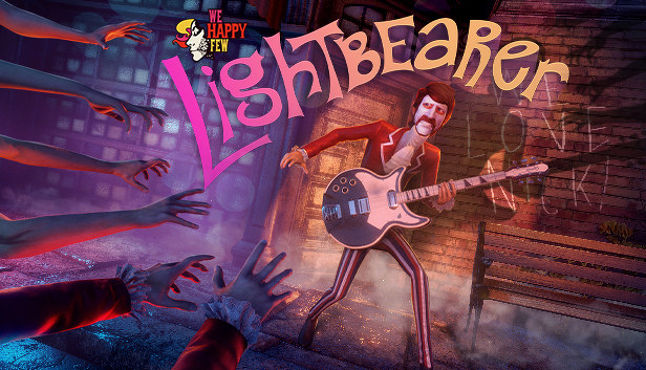
Inel Tomlinson was the voice of Virgil in We Happy Few’s DLC Lightbearer
How do voice actors develop sustainable businesses?
Maintain a website and social media profiles
Tomlinson has managed to book work through websites like Twitter in the past, noting that independent game developers often advertise roles online, and says that being active and visible online can help actors with networking. He also feels that having your own website showcasing your portfolio and clips is important.
Goodman adds that putting yourself out there and getting to know people at events, like game expos, can be helpful for actors: he’s met people who were later signed for Charactoon in this way. He also repeats a piece of advice given to him by a friend: “You’ve got to get the tap dripping before it flows.”
Gillmore describes it as a red flag if she can’t find any presence of an actor online. For example, she remembers receiving an excellent audition tape for a character with an Irish accent in response to an open call. Although it wasn’t a dealbreaker for her client, Gillmore wanted to double check if the actor was natively Irish but couldn’t find any information about them online. After Gillmore failed to receive a reply over email, she was unable to cast the actor in the role.
“If you are auditioning in different accents, I want to know what your base voice sounds like,” Gillmore says, using personal sites, agency sites, Soundcloud profiles, Spotlight profiles for UK based actors or social media links as examples.
As a freelancer, it can be difficult to know exactly how much you should be charging for your work. Tomlinson, Thurman and Smith all point to rate guides available online, provided by organisations like the Global Voice Acting Academy, the Voice Acting Club, Gravy For The Brain and — in Australia — the Media Entertainment & Arts Alliance.
“You have to decide for yourself: what’s your worth? What do you have time for? What’s the possible non-monetary value of this work?”
Ashe Thurman
However, all three have personal rates which they adjust based on the nature of the project: for example, they might charge less for working on a low-budget indie game. For Tomlinson, there is a danger that people who are desperate to get into the voice-over industry will undercharge without knowing the proper rate for their work.
“It undercuts everybody when that happens because if companies can get away with charging lower rates, it means everybody starts paying lower rates in order to get people in,” he says.
Work can also be found through pay-to-play sites, where actors pay a subscription fee to gain access to more exclusive auditions. Smith uses the pay-to-play website Voice123 to book some work, but warns that these sites can be controversial and/or dodgy. She only recommends actors go down this avenue when they’re able to obtain paid work by themselves elsewhere.
Acting for free is also an option starting out to build up your experience and portfolio. Thurman did lots of their original work for free when starting out and will still do so occasionally for certain developers or projects, but feels that it’s important to know where to draw the line.
“You have to decide for yourself: what’s your worth? What do you have time for? What’s the possible non-monetary value of this work?” Thurman says. “I have a limit and I will literally always put my paid work above free work: I have to, that’s just all there is to it.”
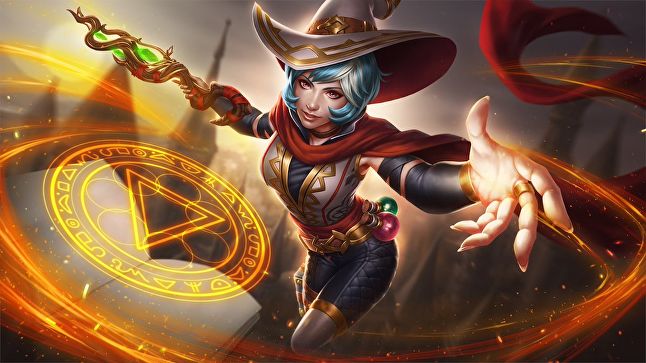
Ashe Thurman did voice work on Evil Mojo and Hi-Rez’s Paladins
Remember why you’re doing this in the first place
Although aspects of the job can be intense, everyone interviewed for this article speaks passionately and enthusiastically about their work. Smith admits that certain elements of the job do become less exciting as time moves on — she doesn’t necessarily jump for joy every single time she books a gig, for example, and says that some people might dislike the business side of the job. However, she feels that becoming a voice actor is the best decision she’s ever made.
“You definitely still have those little milestone moments that make you feel like you want to pinch yourself and you’re like: I cannot believe that this is my job, I cannot believe that I’m still doing this,” Smith says.
Tomlinson loves being involved in the games industry, saying “I’ve grown up playing games all my life and it’s played an integral part to who I am.” However, he would like to see increased diversity in video game characters in the future.
“We’ve still got major issues in this industry, but it’s getting there. The indie scene has really championed diverse voices in the gaming industry”
Inel Tomlinson
“We’ve still got major issues in this industry, but it’s getting there,” Tomlinson says. “I feel it’s as slow as the culture around it is. The same types of games are always the biggest selling types of games and if that stays the same, then the games are going to stay the same. You get certain types of characters that come along with that.
“The indie scene has really championed diverse voices in the gaming industry, in terms of the types of games that we’re getting to play now, the types of places that we’re getting to see in games are changing, and in terms of the characters that we get to see.
“In turn, we’re seeing new actors coming in, we’re seeing new voice-over artists getting their time to shine. It’s nice, I like that — it means there’s more work for everybody. The more it expands, the more it diversifies, the more work for everyone.”
More GamesIndustry.biz Academy guides to Working in Games
Our guides to working in games cover various perspectives, from hiring to retention, to landing the job of your dream or creating the right company culture:
GamesIndustry.biz
Source link
Related Post:
- Games Within Games - The Best Video Games In Other Video Games
- Shadowverse: Champion's Battle first English gameplay featuring voice actor Joe Zieja
- Mecha Strategy JRPG Relayer for PS5 & PS4 Introduces Halley & His Voice Actor Ryo Kikuchi
- Mecha Strategy JRPG Relayer for PS5 & PS4 Introduces Anlnitak & His Voice Actor Genki Okawa
- God of War actor will lend his voice to Black Panther in Marvel's Avengers
- Mecha Strategy JRPG Relayer for PS5 & PS4 Introduces Neil & His Voice Actor
- Mecha Strategy JRPG Relayer for PS5 & PS4 Introduces Observer & His Voice Actor
- Longtime Sonic Voice Actor Returning To Role After Vacating Earlier This Year
- Mecha Strategy JRPG Relayer for PS5 & PS4 Introduces Jupiter & His Voice Actor Yuto Suzuki
- Random: Shulk's Voice Actor Stars In The Latest Mario Golf TV Ad, And It's A Must-See
